Search This Blog
Wednesday, April 30, 2014
Morning Glory (1933)
A pretentious yet naive young girl (Katharine Hepburn) arrives in New York from a small Vermont town to become a stage actress. Her climb won't be easy as she finds out that to make a living, she often has to put her artistic principles aside and her heart comes into conflict with her career goals. Based on a play by Zoe Atkins, this "unknown understudy gets big break when the Star leaves the show and becomes an instant Star" stuff was probably already pretty hoary in 1933. Lord knows it was used often enough. The young Hepburn's eccentric mannerisms which can often irritate in the wrong parts are perfectly right for this role though and she's was impressive enough to to nab the first of her four Oscars for her work here. But as good as she is, she still can't redeem the creaky material. It's the kind of nonsense about the theatuh that Joseph L. Mankiewicz ribbed in ALL ABOUT EVE. Eve Harrington was the dark side of Hepburn's Eva Lovelace, it's only fitting that their first names are so similar. It's Hepburn's show and everyone else is there to prop up her performance. Directed by Lowell Sherman. Remade by Sidney Lumet in 1957 as STAGE STRUCK. With Douglas Fairbanks Jr., Adolphe Menjou, C. Aubrey Smith, Mary Duncan and Helen Ware.
A Hole In The Head (1959)
Tuesday, April 29, 2014
The Return Of Frank James (1940)
After the murder of his brother (Tyrone Power in footage from 1939's JESSE JAMES), his brother Frank (Henry Fonda) goes after Jesse's murderers, the Ford Brothers (John Carradine, Charles Tannen). While I'm a great admirer of Fritz Lang in both his German silents and Hollywood period, I'm not a fan of his westerns. While I haven't seen WESTERN UNION, I've never understood the cult status of RANCHO NOTORIOUS. But at least RANCHO NOTORIOUS was lively and never dull. This highly fictionalized and historically inaccurate story of Frank James is pretty much a stock western that even the most staunch of Lang supporters would have a hard time defending. The most interesting aspect about it is a brief moral conundrum when Frank chooses to go after the man who killed his brother rather than save the life of the black farmhand (Ernest Whitman) innocently sentenced to hang as Frank's accomplice to a murder. A good half hour is devoted to one of the most dull trials ever put on film. The film features lovely Gene Tierney, rather colorless, in her film debut as a feminist ingenue. The three strip Technicolor cinematography by George Barnes (REBECCA) is quite handsome though. With Jackie Cooper, Henry Hull, Donald Meek and Barbara Pepper.
Don Juan De Marco (1994)
Monday, April 28, 2014
The Cassandra Crossing (1976)
Sunday, April 27, 2014
Il Conformista (aka The Conformist) (1970)
An ambitious Fascist (Jean Louis Trintignant) joins the secret police. Yet he also aspires to a "normal" life and to this end marries a bourgeois girl (Stefania Sandrelli). He is assigned to assassinate his old university professor (Enzo Tarascio), an anti-Fascist. He appears to have conflicts when he falls in love with the professor's wife (Dominique Sanda). Based on the novel by Alberto Moravia, the director Bernardo Bertolucci (who also wrote the Oscar nominated screenplay) has created an opulent and sensual tapestry of an aggressive if maladjusted patrician who desperately wants to be accepted. Trintignant's character doesn't seem so much committed to Fascism as much as wanting to belong to the "in" group. So much so that when he has an out, he can't accept it. He's a weakling and belonging to such a group essentially covers up his basic cowardice, his moral rot. The narrative would be no where near as compelling if it weren't for luxurious lensing by the great Vittorio Storaro. The acting is uniformly excellent. The lyrical score is by Georges Delerue. With Pierre Clementi and Gaston Moschin.
Saturday, April 26, 2014
Diary Of A Chambermaid (1946)
The Quiller Memorandum (1966)
After one of their agents (Herbert Stass) is murdered in Berlin, the British Secret Service sends a new agent (George Segal) to take over the mission. The mission is to ferret out a neo-Nazi organization working undercover in West Berlin. Ah, the 1960s and the proliferation of Cold War films. Technically, this isn't a Cold War thriller as it's not the Soviets but neo-Nazis in West Berlin that are the enemy but the style and atmosphere are the same though Harold Pinter's taut and literate script (based on the novel by Trevor Dudley Smith) owes a lot to Graham Greene. Michael Anderson (AROUND THE WORLD IN 80 DAYS) is a director without a distinct style or personality which makes most of his films rather generic. But this movie, along with SHAKE HANDS WITH THE DEVIL, shows that he could make a solid intense drama that can hold its own. One thing that is never explained is what is an American doing working for the British Secret Service? No explanation is given as to why, we're just meant to accept it. That aside, this is one of the better anti-James Bond spy thrillers of the 1960s along with THE IPCRESS FILE and THE SPY WHO CAME IN FROM THE COLD though we're often one step ahead of its hero. The end comes as no surprise. The atmospheric underscore is by John Barry (how he is missed). With Alec Guinness, who makes the most of his brief screen time as Segal's superior, Max Von Sydow, lovely Senta Berger, George Sanders and Robert Helpmann.
Friday, April 25, 2014
For The First Time (1959)
Platinum Blonde (1931)
Thursday, April 24, 2014
A Day Of Fury (1956)
Wednesday, April 23, 2014
Oklahoma! (1999)
In 1906 Oklahoma (before statehood), a cowhand (Hugh Jackman) sets his eye on a farm girl (Josefina Gabrielle) but so does a rather maladjusted farmhand (Shuler Hensley). The tension between the three can only lead to no good. The landmark 1943 Rodgers and Hammerstein musical (their first show together) is a perennial revival on the New York and London stages as well as community theaters across the country. This filmed version of the acclaimed 1998 London revival shows the musical has lost none of its homey appeal and boasts a marvelous Curly in Jackman, a show stealing performance by Shuler Hensley as Jud Fry (his rendition of Lonely Room is a killer), boisterous choreography by Susan Stroman and assured direction by Trevor Nunn. Nunn has nipped and tweaked the show a bit as has Stroman's dance numbers. Notably in the dream ballet where normally dancers double for the two leads (Curly and Laurey) but Jackman and especially Gabrielle are good enough dancers to handle the dancing themselves without the substitutes. The show was obviously reformatted for film and shot on a sound stage but interspersed with filmed pieces from a live performance before an audience to make us think we're seeing a fully live performance. With Maureen Lipman as Aunt Eller, Jimmy Johnston as Will Parker and Vicki Simon as a very anemic Ado Annie. She has one of the show's best numbers, I'm Just A Girl Who Can't Say No, which falls flat here.
Tuesday, April 22, 2014
My Man And I (1952)
A Mexican migrant worker (Ricardo Montalban) takes on a job with a mean spirited farmer (Wendell Corey) for a month. But between the farmer's sexually frustrated wife (Claire Trevor) and the Muscatel guzzling barfly (Shelley Winters) he falls in love with, his problems are only just beginning. Ricardo Montalban was one of the few Hispanic actors who managed (for the most part) to avoid stereotypical Latino roles. In films like this and BORDER INCIDENT, MYSTERY STREET and BATTLEGROUND to name just a few, he played Hispanic men with a dignity, with a purpose, providing well round characterizations rather than the usual Latino stereotype. Directed by the veteran director William Wellman from a screenplay co-written by John Fante (author of one of the quintessential L.A. novels ASK THE DUST), the film has a solid first hour until Montalban's character does something so insanely stupid that the film jumped the track for me and my interest dwindled. The mawkish title refers to the Montalban/Winters romance which doesn't come across as very believable. Much more interesting are the supporting characters played by Trevor and Corey. Stuck in a miserable marriage, each contemptuous of the other, one can't help but wonder what brought them to this point in their lives and why they still cohabit. With Jack Elam (unconvincing playing Mexican) and George Chandler.
Monday, April 21, 2014
Night Tide (1961)
A sailor (Dennis Hopper) on shore leave spends the day at an amusement park on the beach in Southern California. He becomes infatuated with a strange girl (Linda Lawson) who believes she is a Siren, mythic mermaids who lured men to their doom in Greek mythology. Despite warnings from others (her last two lovers died under mysterious circumstances), he insists on developing the relationship. This dark dream of a movie, its mood intentionally echoes Edgar Allan Poe, never got the release it deserved back in 1961, although Time magazine named it as one of the ten best films of the year. It's developed a cult reputation in the ensuing years however. Its low budget (it cost $50,000 to make) on location shooting (not a single studio shot) actually gives the film a distinct and credible feel to it which enhances the reality versus fantasy aspects of the narrative. It's not unlike another low budget B&W cult horror in that respect, Herk Harvey's CARNIVAL OF SOULS. Filmed in the grimy and atmospheric city of Venice, California (where Welles shot TOUCH OF EVIL) before it became the trendy conclave it is today, Curtis Harrington's film is heavily influenced by Jacques Tourneur's CAT PEOPLE. Indeed, he boldly lifts a scene from the Val Lewton movie at the beginning of the film. It's crude indie film making at its most basic level but effective, very very effective. The score is by David Raksin (LAURA). With the wonderful Luana Anders, Gavin Muir and Marjorie Cameron (whose own life would make for a terrific movie).
Sunday, April 20, 2014
Monsieur Hire (1989)
A rather drab misanthrope (Michel Blanc) is not liked by his neighbors because he keeps to himself and refuses to socialize. When the murder of a young girl occurs in the neighborhood, he becomes the chief suspect. In the meantime, he continues to look out of his window into the apartment of an attractive young woman (Sandrine Bonnaire, VAGABOND). Based on a short novel by the prolific Belgian mystery writer Georges Simenon, the director Patrice Leconte does a fine job of keeping the narrative concise (the film clocks in at less than 90 minutes) which is good as there's only the thinnest of plots and the rest filled in by character detail. At first, we can understand why Blanc's Monsieur Hire is unliked, we don't like him either. But we soon see his innate loneliness and despite his misanthropy, his need for another human's touch. We're not quite sure how all this will play out until we get the "twist" which comes past the midway point after which it becomes rather predictable. But even its predictability doesn't negate the poignancy and sadness we feel at the film's end. The droning score is by Michael Nyman (THE PIANO). With Luc Thuillier and Andre Wilms.
Saturday, April 19, 2014
Sordid Lives (2001)
The Great American Pastime (1956)
Friday, April 18, 2014
Love From A Stranger (1937)
A young woman (Ann Harding) wins a lottery which allows her financial freedom and she quits her job. Soon after, she is swept off her feet by a handsome stranger (Basil Rathbone) and they quickly marry and move to the country. But his behavior becomes increasingly bizarre and he has unexplained temper tantrums ..... and why won't he allow anyone down in the cellar? Based on the Agatha Christie short story PHILOMEL COTTAGE by way of a play version by Frank Vosper, the story is too obvious and predictable to have much suspense going for it. Harding is attractive and agreeable but Rathbone overplays the craziness of his character to the point of parody. Still, if you're an Agatha Christie fan or completist, it's worth checking out at least once. Remade in 1947. Directed by Rowland V. Lee (SON OF FRANKENSTEIN). With Joan Hickson, Binnie Hale and Bruce Seton.
Under The Skin (2014)
Kiss Of The Spider Woman (1985)
Thursday, April 17, 2014
Perfect Friday (1970)
Wednesday, April 16, 2014
Johnny Reno (1966)
On his way to a small western town to look up an old girlfriend (Jane Russell), a U.S. Marshal (Dana Andrews) is ambushed by two brothers (Tom Drake, Dale Van Sickel) on the run. After disposing of one brother, the Marshal takes the surviving brother in in spite of his entreaties of innocence. In the 1960s, the producer A.C. Lyles made a string of low budget westerns featuring stars whose salad days were behind them. Andrews and Russell still have a bit of their old spark left but they're definitely a little ragged around the edges. Even in his prime, the slender Andrews would have seemed out of place in the barroom brawl here featuring an obvious but robust stunt double. This is a simple (or simplistic if you prefer) uncomplicated western that owes a lot to John Sturges' BAD DAY AT BLACK ROCK. Just replace the Japanese farmer of that film with an Indian and you can pretty much guess where the film is going. Andrews and Russell are always welcome but there's not much they can do with the cliched dialogue or predictable narrative. Drake's character as written is so dumb that it's hard to drum up much sympathy for him. Directed by R.G. Springsteen. Among the other veterans in the cast: Lon Chaney Jr., Lyle Bettger, John Agar (as incompetent as ever) and Richard Arlen.
Tuesday, April 15, 2014
Amelia (2009)
As the famed aviatrix Amelia Earhart (Hilary Swank) makes her attempt in 1937 to be the first woman to fly around the world, her rise from a young woman with ambitions to be a female Lindbergh to world famous aviatrix is chronicled in flashback. The mystery of Amelia Earhart's fateful disappearance while flying on July 2, 1937 never to be heard from again has captured the imagination of several generations. Several bizarre theories (and some not so strange) have been concocted but this is not concerned so much with what happened to her (it presumes she simply went into the ocean after running out of fuel) but her life. Quite simply, aside from her feminist outlook and rather daring views on monogamy, her life wasn't all that interesting. The film trumps up a romantic triangle involving Earhart, her husband (Richard Gere) and a colleague (Ewan McGregor) in an attempt to sex up the film but it's the least interesting aspect of the movie. The film's tense filled final 25 minutes are very well done and if the rest of the film had been served as well, it would probably have done much better critically and at the box office. The cinematography by Stuart Dryburgh (THE PIANO) is handsome and there's a beauty of an underscore by Gabriel Yared. Directed by Mira Nair (MONSOON WEDDING). With Mia Wasikowska, Christopher Eccleston and Cherry Jones as Eleanor Roosevelt.
In Harm's Way (1965)
After the Japanese attack on Pearl Harbor, a U.S. Navy captain (John Wayne) is removed from command for not following procedure when he went after a Japanese vessel. Also, a Navy commander (Kirk Douglas) is demoted for getting into a drunken brawl. But soon, they'll both get a chance to redeem themselves as the war in the Pacific begins to heat up. Based on the best selling novel by James Bassett, director Otto Preminger's ambitious WWII epic (it pushes the three hour mark) is well made and well acted but it tries to cram too much into its narrative and the film suffers because of it. Notably the Paula Prentiss and Tom Tryon story line which seems to have been cut to the point that their story seems extraneous to the rest of the film. Jettisoning their story would have cut 20 minutes out of the movie and some of the battle scenes are somewhat confusing (as in what's going on?). The film eschews jingoism and shows a warts and all Navy and its characters flawed rather than typical All-American heroes. The crisp Oscar nominated B&W wide screen lensing is by Loyal Griggs (SHANE) and there's a topnotch score by Jerry Goldsmith. The massive cast includes Patricia Neal (very good though her BAFTA best actress win for work here seems inexplicable), Henry Fonda, Dana Andrews, Brandon De Wilde, Burgess Meredith, Franchot Tone, Hugh O'Brian, Jill Haworth, George Kennedy, Carroll O'Connor, Larry Hagman, Patrick O'Neal, Stanley Holloway, Bruce Cabot and Barbara Bouchet.
Monday, April 14, 2014
Station West (1948)
Sunday, April 13, 2014
Houseboat (1958)
A widower and single father (Cary Grant) attempts to raise his children on his own shortly after his wife's death. Meanwhile, an Italian girl (Sophia Loren) runs away from her overprotective father (Eduardo Ciannelli), a famous symphony conductor. She accepts a job as a housekeeper on the widower's houseboat where he lives with his three children. Cary Grant ... Sophia Loren ... how long before romance breaks out? It's hard to resist this glamorous piece of unlikely romantic whimsy, so why try? Just give in. There's really not much one can say about a chunk of pastry like this. Directed by Melville Shavelson (CAST A GIANT SHADOW), it's got an above average Oscar nominated script by Shavelson and Jack Rose that doesn't insult our intelligence too much, an alluring Loren who looks fantastic in her Edith Head wardrobe, a tender George Duning (PICNIC) score and one of the best movie songs from the 1950s, Almost In Your Arms as sung by Sam Cooke. With Martha Hyer (once again playing the other woman), Harry Guardino, Murray Hamilton, Werner Klemperer and as the three children, Paul Petersen (THE DONNA REED SHOW), Mimi Gibson and Charles Herbert.
Friday, April 11, 2014
The Ghoul (1933)
A dying professor of Egyptology (Boris Karloff) believes that if he offers a rare diamond to the Egyptian god Anubis that he will be granted eternal life. But after his death, there are many who desire that diamond, some for cultural reasons, others for profit. Despite Karloff in the title role and the similarity to THE MUMMY, this is not a Universal horror but a British film which imitates the Universal style. If you're a fan of the Universal monsters series, you'll most likely find some favor here but it's pretty anemic. It has the most pompous stiff hero (Anthony Bushell), comic relief in the form of Kathleen Harrison (TURN THE KEY SOFTLY) that's more annoying than amusing and characters behaving in illogical ways. For instance, after Cedric Hardwicke spots a man returning from the dead breaking into the mansion, does he panic in terror and tell everyone to get out of the house? No! He fixes himself a stiff drink. The film has a lot of atmosphere which helps a lot and its moderately enjoyable. Directed by T. Tayes Hunter from the 1928 book book by Frank King though there's little resemblance outside of the title. With Ralph Richardson in his film debut, Ernest Thesiger and Dorothy Hyson.
Wednesday, April 9, 2014
De Vierde Man (aka The Fourth Man) (1983)
Honky Tonk (1941)
Tuesday, April 8, 2014
The Mephisto Waltz (1971)
Monday, April 7, 2014
Forget Me Never (1999)
An administrative assistant (Mia Farrow) in a major law firm finds herself struggling with disorientation and memory lapses. Although only in her fifties, she is diagnosed with the early onset of Alzheimer's disease. TV movies about people suffering from a disease, everything from cancer to AIDS, are a staple of TV movies, usually bad ones. So much so that it's become a quick put down or dismissal as in "It's like a TV movie of the week"! But every once in awhile, they get it right. This is one of those times. Based on the non fiction book LIVING IN THE LABYRINTH by Diana McGowin (played by Farrow here), this is a non sentimental, hard nosed look at one woman's dealing with the onset of the disease. Anchored by a terrific performance by Farrow, she lets us see her confusion, fear, anger, strength as she comes to terms of the reality of her situation. This isn't a tearjerker but an opportunity from someone suffering with the disease to allow us to see a little, just a little, of what her world is like. It might have been made for TV but it's shot like a feature film and the creative cinematography by Mike Rash (THE WHALES OF AUGUST) elevates the look of the film. Directed by Robert Allan Ackerman. With Martin Sheen, Colm Feore and Roberta Maxwell.
Sunday, April 6, 2014
Escape To Burma (1955)
In Burma (now known as Myanmar), a miner (Robert Ryan) is on the run from the governing British law enforcement for the murder of the son of a Burmese ruler (Robert Warwick). He hides out at the estate of a plantation owner (Barbara Stanwyck) while a police captain (David Farrar, BLACK NARCISSUS) is in hot pursuit. The veteran director Allan Dwan did a series of films at RKO in the mid 1950s under the aegis of producer Benedict Bogeaus. This is one of the least interesting of their collaborations and even Dwan's admirers have very little positive to say about it. Its biggest crime is that it's routine which doesn't mean its bad. It's an inoffensive jungle adventure with the usual elephants and tigers for local color (though it appears to have been filmed on sound stages) punched up a notch by some strong star power by Stanwyck and Ryan. A perfect time waster on a rainy day with a hot cup of coffee or tea. With Reginald Denny, Murvyn Vye and Lisa Montell.
Saturday, April 5, 2014
Everything You Always Wanted To Know About Sex* (1972)
A series of seven vignettes on sexually related matters: a court jester (Woody Allen) lusts for a Queen (Lynn Redgrave), a doctor (Gene Wilder) falls in love with a sheep, an Italian bride (Louise Lasser) appears to be frigid, a married man (Lou Jacobi) likes to dress in women's clothes, a game called What's My Perversion? challenges its panel to guess the contestant's sexual perversion, a giant breast terrorizes the countryside, the brain's control center attempts sexual penetration. Though it takes the title of the best selling non fiction manual by Dr. David Reuben, Woody Allen's portmanteau comedy bares little resemblance (thankfully) on the book. The movie is an amusing toss off made during Allen's lesser period (aka pre-ANNIE HALL) and gives him an opportunity to satirize 1950s horror films (the giant breast), 1960s Antonioni (the frigid bride) as well as FANTASTIC VOYAGE (the brain control center sequence). Not unexpectedly, some of the results are hit and miss. Still, each segment is short enough not to wear out its welcome (though some of its sexual attitudes now seem dated) as it breezily moves along. With Burt Reynolds, Tony Randall, Anthony Quayle, Regis Philbin, John Carradine, Jay Robinson, Pamela Mason, Geoffrey Holder, Heather MacRae, Robert Q. Lewis and Erin Fleming.
Texas Killing Fields (2011)
Despite protestations from his partner (Sam Worthington, AVATAR), a homicide detective (Jeffrey Dean Morgan) feels compelled to investigate a series of killings of young girls outside their jurisdiction whose bodies have been dumped in a forlorn marsh area designated the "killing fields". Man, this is one dark and disturbing movie. Directed by Ami Canaan Mann (the daughter of director Michael Mann but I won't hold that against her), we're tossed into a world of child prostitution, serial killers, abusive mothers, vicious pimps and cops who cross the boundaries of ethics. It's so grim that its slightly (very slightly) hopeful ending seems out of place. I don't think the film's intention is that of a typical thriller but more of a mood piece and on that level, it's very effective. The acting is surprisingly good, even Sam Worthington gets to show he has acting chops. The film's reception has been mixed and I can see why. It's not a film I'd recommend to everyone. I'd give it a thumbs up but I suspect the lack of entertainment value or a cathartic pay off would put most people off. With Jessica Chastain, Chloe Grace Moretz, Jason Clarke, Annabeth Gish, Stephen Graham and Sheryl Lee, barely recognizable as the Laura Palmer of TWIN PEAKS, as Moretz' promiscuous mother.
The Day The Earth Caught Fire (1961)
Friday, April 4, 2014
Stella Dallas (1925)
When a rather coarse girl (Belle Bennett) from the "wrong side of the tracks" marries up to a well bred upper class young man (Ronald Colman), they have a child. But almost immediately, their lifestyles as well as their different values clash and when the husband is promoted to a job in New York, she stays behind with their daughter. Mother love has been a staple in films since the inception of cinema and STELLA DALLAS is one of the more notable examples of the genre, in fact, it practically defines it. Most moviegoers remember the 1937 version with a superb Barbara Stanwyck performance and perhaps its less successful remake with Bette Midler in 1990. This first film adaptation directed by Henry King (SONG OF BERNADETTE), is an effective piece of cinematic sentiment. I'm unfamiliar with the work of Belle Bennett (who died in 1932) but based on her memorable performance here, she appears to be a formidable actress. Not on a par with Stanwyck's career benchmark performance but impressive nonetheless. The transfer I saw was truly silent, it had no music at all so I put on the Elmer Bernstein soundtrack to BIRDMAN OF ALCATRAZ and it was downright eerie how effective it was. With Alice Joyce, Douglas Fairbanks Jr., Jean Hersholt and pretty Lois Moran who effectively plays the daughter from the age of 10 to her 20s.
Coma (1978)
Thursday, April 3, 2014
Sansho Dayu (aka Sansho The Bailiff) (1954)
Wednesday, April 2, 2014
Barefoot In The Park (1967)
The Hangman (1959)
A U.S. marshal (Robert Taylor) is tracking down a man (Jack Lord) who was part of a robbery that resulted in a killing. The problem is that the only person who can identify him is a woman (Tina Louise) who was once in love with him. His job is further hampered when the townsfolk are downright hostile toward him because the suspected killer is beloved by the entire town. Directed by the prolific Michael Curtiz, this is a decent if unexceptional western. It connects all the right dots but one wishes for a detour from the predictable path. There's not much one can say about a fairly generic western like this. To its credit, the film seems more interested in the psychological aspects of the story rather than the usual shoot 'em up. Taylor, who became a better actor as he aged, manages to bring a few layers to his cynical character while Tina Louise can't do much with her role. Loyal Griggs (SHANE) is responsible for the sharp B&W cinematography. With Fess Parker, Lorne Greene, Mickey Shaughnessy, Gene Evans and Mabel Albertson.
Tuesday, April 1, 2014
The Accidental Tourist (1988)
A travel writer (William Hurt) finds his marriage disintegrating after the death of his son (who was murdered). After his wife (Kathleen Turner) leaves him, he finds his routine life invaded by a quirky dog trainer (Geena Davis). While she brings him out of his shell, he still finds himself attached to his old life and wife. Based on the novel by Anne Tyler, this was one of the most praised films of 1988. The New York Film Critics named it the best film of 1988, it also was nominated for a best picture Oscar and Geena Davis won the best supporting actress award for her performance. But it doesn't seem remembered today as one of the major or important films of the 1980s, which is a pity as it's a wonderfully contemplative look at how accepting we become of the routine of our lives, how we often fight against change and opening up. Its protagonist is a conundrum, he's unable to deal with the problems his life has thrown at him and avoids conflict yet he realizes his inability. When we meet his anal retentive family (they place the products in their pantry alphabetically), we can see the where and the why of his personality. I love Hurt's performance here and he was probably my favorite actor of the 1980s. He has the uncanny ability of hiding his acting so that all you see is the character, a rare feat. Directed by Lawrence Kasdan. With Bill Pullman, Amy Wright, Ed Begley Jr., David Ogden Stiers and Robert Hy Gorman.
Bride By Mistake (1944)
Subscribe to:
Posts (Atom)
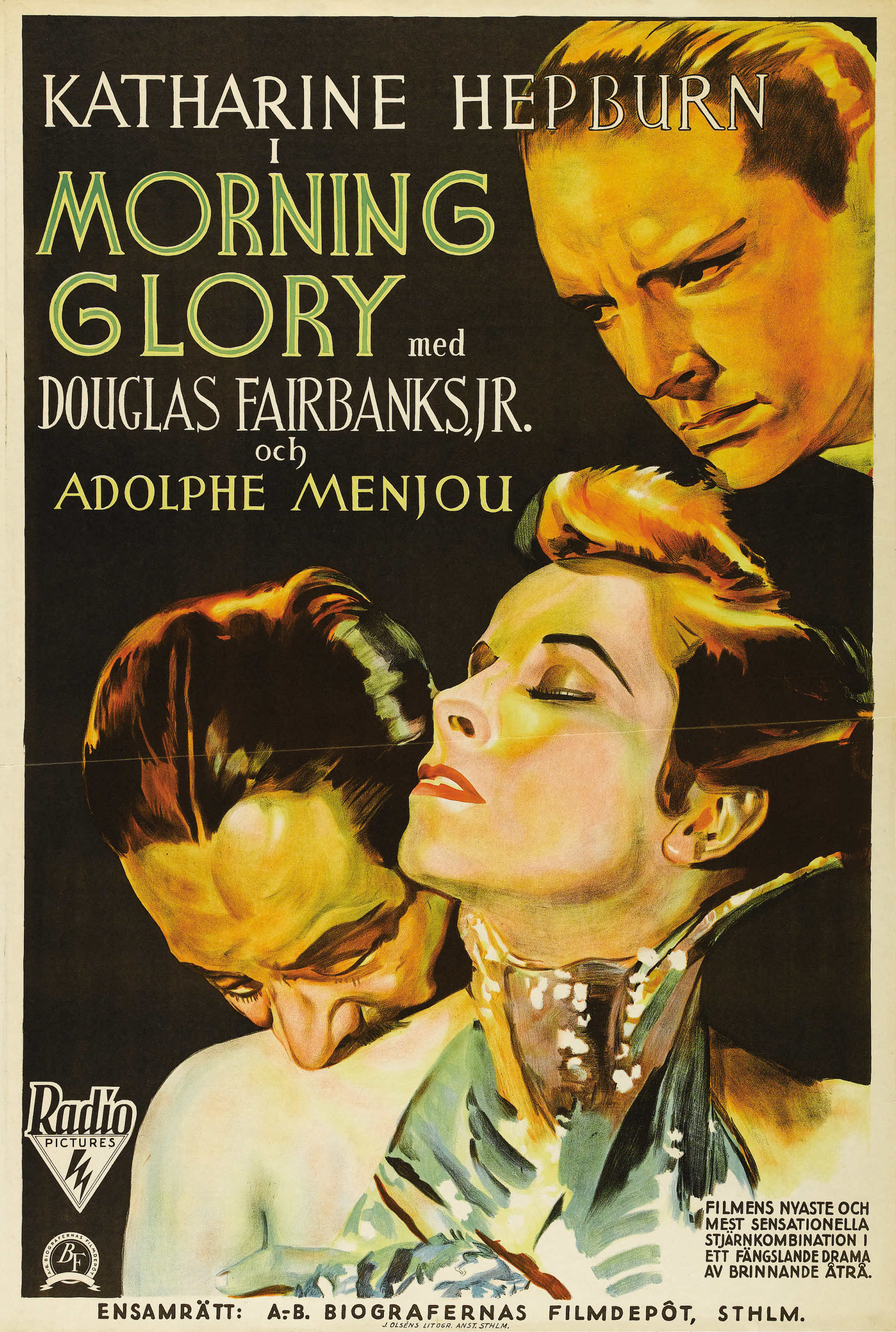
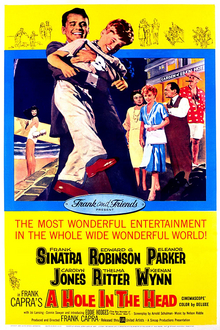

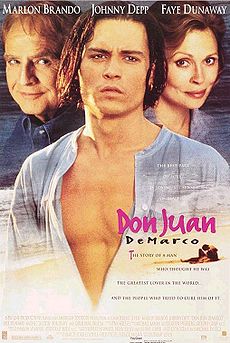

.JPG)
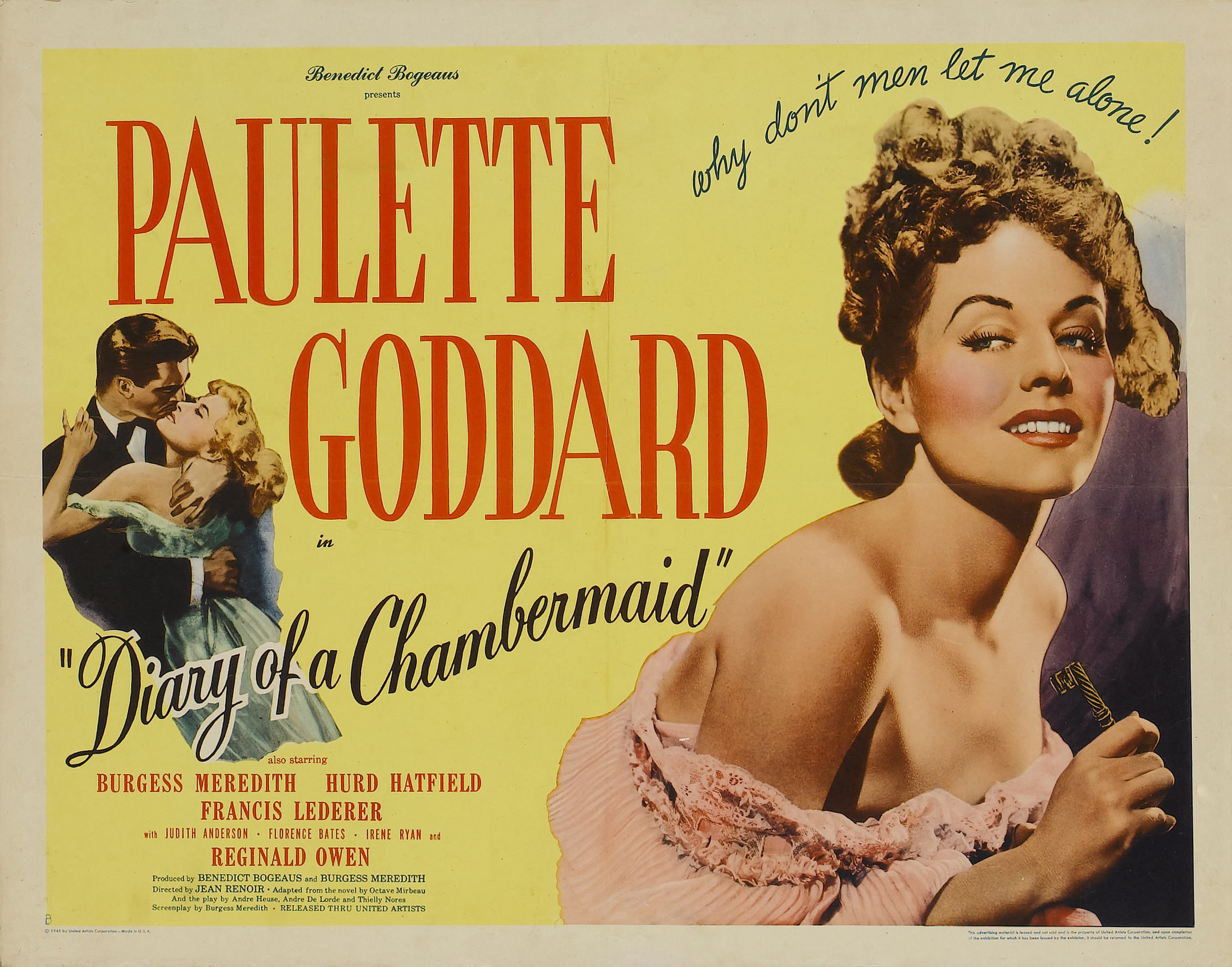
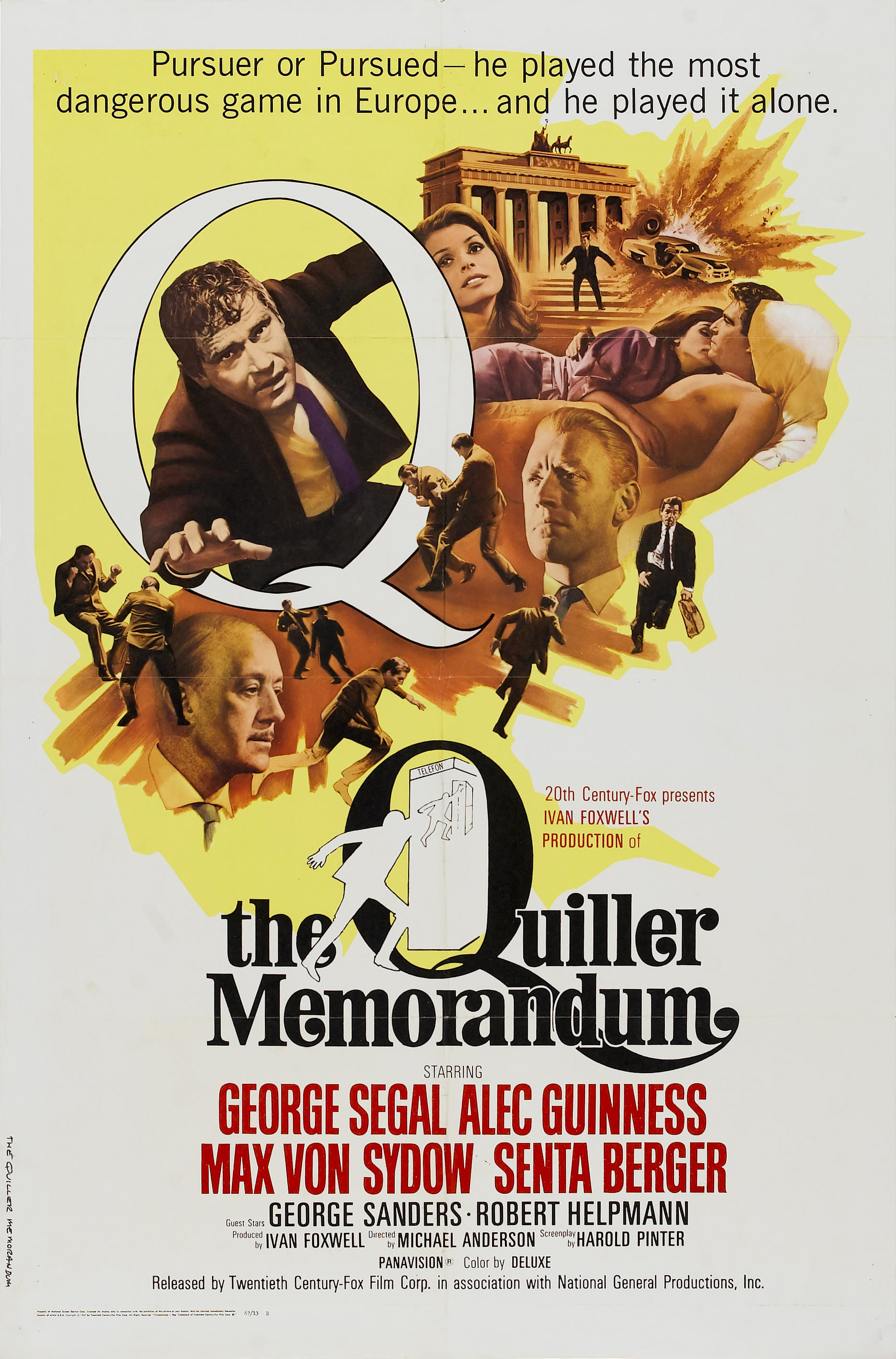






.JPG)

.JPG)
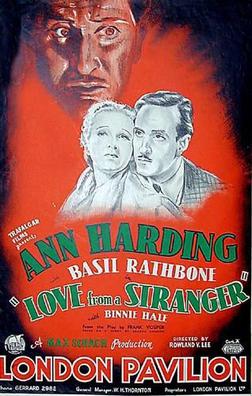
.JPG)



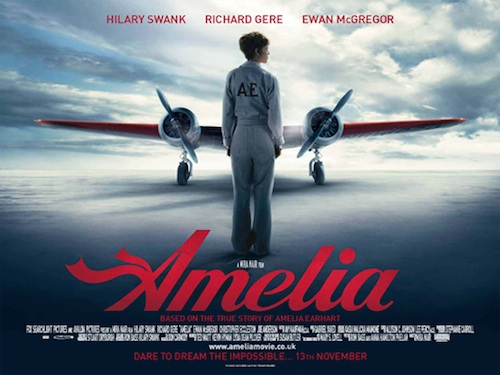











.JPG)
_poster_1.jpg)
.JPG)

.JPG)


